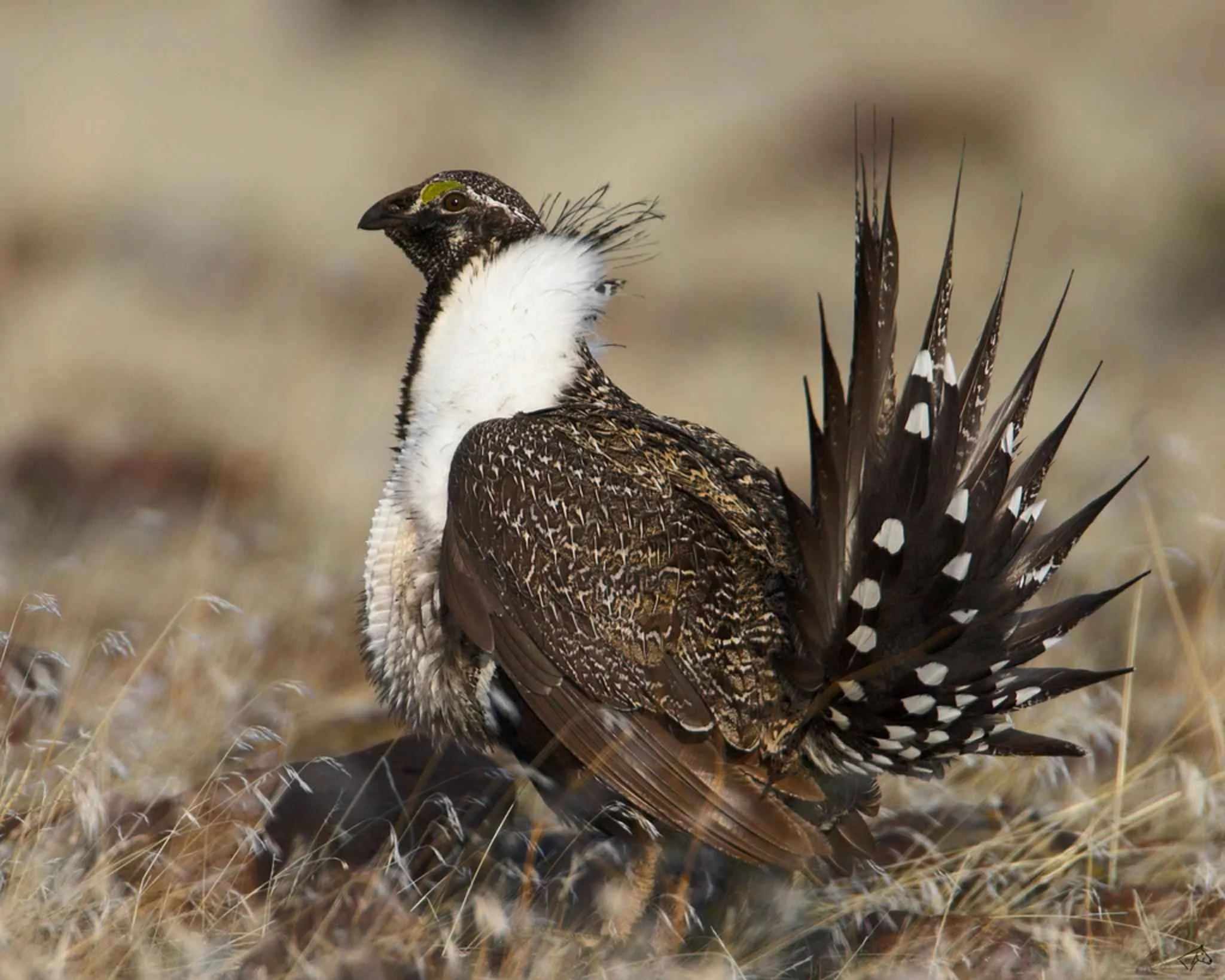Mink Fur Farms In US Could Be Phased Out As New Legislation Introduced
The proposed bill cites public health concerns associated with mink farms, as the animals are highly susceptible to COVID-19 and can transmit mutated forms of the virus back to humans.
Mink caged on a fur farm. Credit: Anima International
Controversial mink fur farms in the US could be phased out under new legislation that was introduced last week.
The ‘Mink: Vectors for Infection Risk in the United States Act’, known as the Mink VIRUS Act (H.R. 3783), aims to protect public health and reduce the risk of zoonotic disease transmission by prohibiting mink farming in the country.
“Mink farming poses a severe and urgent problem to public safety as numerous studies have shown the animals are highly susceptible to COVID-19 and can transmit a mutated form of the virus back to humans,” said Representative Adriano Espaillat (NY-13), who introduced the legislation.
Under the plans, a new federal grant program will help phase out current farms within a one-year period by offering a reimbursement to farmers.
The legislation comes amid fears that mink on fur farms could help spark a new pandemic. Already, around 18 fur farms across the US have reported outbreaks of SARS-CoV-2, the virus that causes COVID-19.
“As communities around the nation are continuing to recover from the devastation brought on by the COVID-19 outbreak that include health implications and economic shutdowns, we must put forth new and improved safety protocols and disincentivize mink farms that hinder our progress to recover from the pandemic as well as combat outbreaks of other viruses in the future”, explained Rep. Espaillat.
Credit: Oikeutta eläimille
The Animal Legal Defense Fund (ALDF), who commended the new legislation, reported that tens of thousands of mink in the US have been infected with COVID-19, and there have been documented cases where mink have transmitted the virus to humans. Despite the zoonotic disease risk, ALDF says the federal government has offered mink farms millions of dollars in loans to compensate producers for losses incurred from COVID-19 infection.
“The federal government should not be using taxpayer dollars to prop up a dying industry that has the potential to fuel the next pandemic”, said Alicia Prygoski, a spokesperson for ALDF.
Phasing Out the Fur Industry
Cities and states in the US and foreign countries such as Israel are now banning fur sales, helping to close markets for fur products. In 2019, California became the first state to ban fur sales after similar measures passed in Los Angeles, San Francisco, Berkeley and West Hollywood. In 2020, Wellesley, Massachusetts became the first East Coast city to ban fur sales. Countries who have banned or are phasing out mink farming specifically include British Columbia, Hungary, and the Netherlands.
While these bans have been driven by a combination of factors including public health concerns, the banning of fur products along with the falling consumer demand for animal-derived furs and skins represents huge progress against an industry which has long been accused of animal cruelty.
Credit: We Animals / Jo-Anne McArthur
Animal welfare group Born Free USA says that mink fur farming is “undeniably cruel”, citing the “brutal” treatment of farmed mink where the animals are slaughtered by gassing, cervical dislocation, or electrocution. While they are alive, animals are often crammed at high densities into tiny spaces with little room to move and no space to carry out natural behaviors. These living conditions cause severe mental and physical distress, weakened immune systems, and injury.
Decades of campaigns against fur farming have raised the international profile of the reality behind fur products, and it is believed that the majority of consumers are now opposed to the industry. In a 2021 poll, it was found that 71 percent of Americans do not support the killing of animals for their fur.
The Future is Fur Free
Many major fashion brands including Gucci, Michael Kors, Burberry, Dolce & Gabbana, and Moncler have removed fur from their collections in favor of more ethical and eco-conscious materials, while the former CEO of the Fur Trade Association has denounced the animal cruelty inherent in the fur trade as “indefensible”.
Despite the progress, around 100 million animals are still killed for their fur every year as part of the global fur trade, including coyotes, minks, raccoon dogs, and chinchillas.
But fashion brands and designers are increasingly turning to next-gen (animal-free, high-performance, and sustainable) materials in place of animal fur. Recent examples include the New York City-based material innovation studio and outerwear brand House of Fluff which has developed BIOFUR, a biodegradable animal-free fur, while KOBA fur produces a bio-based fur made from oil from vegetable crops.
Join Species Unite in urging Congress to pass H.R.3783, the Mink: Vectors for Infection Risk in the United States Act (Mink VIRUS Act). Add your name to our petition here.
Want to change the world for animals? Sign up for 30 Days of Action for Animals, an empowering new campaign by Species Unite, where you can make a real difference in the lives of animals each day. Throughout the month of July, you’ll receive daily emails packed with inspiring ideas on how to take action and create a kinder world for our furry, feathery, and scaly friends.
We Have A Favor To Ask…
Species Unite amplifies well-researched solutions to some of the most abusive animal industries operating today.
At this crucial moment, with worldwide momentum for change building, it’s vital we share these animal-free solutions with the world - and we need your help.
We’re a nonprofit, and so to keep sharing these solutions, we’re relying on you - with your support, we can continue our essential work in growing a powerful community of animal advocates this year.
More stories:
Species Unite
A collection of stories of those who fight the good fight on behalf of animals.






From roses and chocolates to scented candles and much more, here are the ones we'll be wishing for come 14 February.